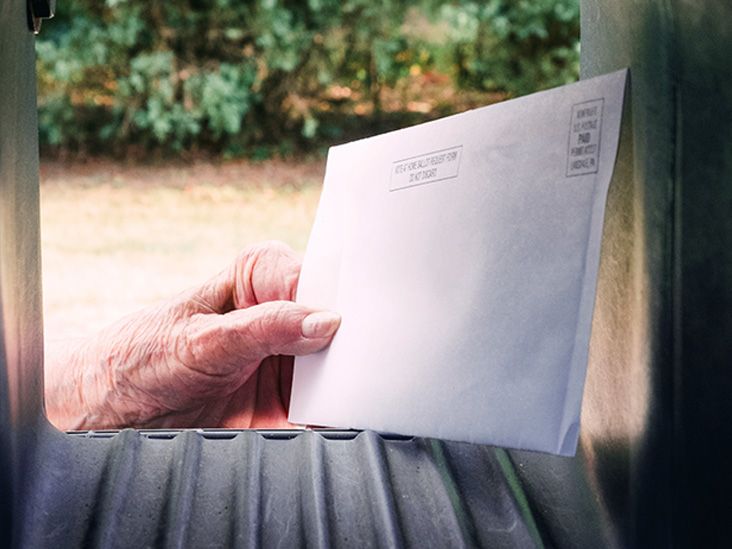Hey there if you're reading this, chances are you or someone you care about is navigating the world of medications as we age. And trust me, you're not alone in this journey. What might seem like a simple routine popping a few pills each day can actually become a complex balancing act that requires a bit more attention and care as the years go by.
Let me share something with you. A few years back, my dear friend Margaret nearly ended up in the emergency room after combining her blood pressure medication with a new over-the-counter sleep aid. She had no idea they could interact so dramatically. The dizziness and confusion she experienced could have been avoided with just a little more knowledge about medication safety.
That's why I want to talk to you about this important topic with warmth and honesty, like we're sitting over coffee discussing something that really matters to both of us.
Why Medication Safety Matters
As we get older, our bodies change in ways that make medication management more critical than ever. Think of it like this your liver and kidneys, which work hard to process and eliminate medications from your system, start working at a slower pace. It's kind of like they're taking a more leisurely approach to their job, which means medications can stay in your system longer and build up to potentially problematic levels.
This natural slowdown creates a situation where even standard doses can cause unexpected side effects or interactions. You might find yourself feeling more tired than usual, experiencing unexpected dizziness, or dealing with other symptoms that seem confusing at first.
The risks of poor medication management in older adults are real and can be serious. We're talking about increased chances of falls due to dizziness or confusion, hospitalizations that could be prevented, and even complications that make existing health conditions harder to manage.
5 Essential Tips for Safe Medication Use
Take Medications Exactly as Prescribed
I know what you might be thinking "Surely skipping one dose won't hurt." But here's the thing: when it comes to managing chronic conditions like diabetes or high blood pressure, consistency is absolutely key. Those daily medications are working hard to keep your body in balance, and when you skip doses or adjust them on your own, you're essentially asking your body to play catch-up.
I've seen people try to save money by splitting pills or taking half doses, thinking they're being clever. While this might work in some cases with your doctor's guidance, it can backfire spectacularly with certain medications. The safest approach? Check with your healthcare provider before making any changes even with those seemingly harmless over-the-counter remedies.
And here's a pro tip that's made life easier for so many people: use reminder apps, simple pill organizers, or even good old-fashioned alarm clocks. These tools can be game-changers when you're juggling multiple medications throughout the day.
Store Medications Properly
Let's talk about where you keep your medications and spoiler alert: the bathroom cabinet might not be the best spot. I know it seems convenient to keep everything in one place, but that steam from your morning shower? Not your medications' best friend.
Most medicines prefer a cool, dry environment think bedroom drawer or kitchen cabinet away from the stove. Your car during summer? Big no-no. That intense heat can turn your carefully formulated medications into something less effective or even potentially harmful.
And here's something I wish more people knew about: expiration dates aren't just suggestions. Expired medications don't simply stop working they can actually break down into substances that might not be so friendly to your body. The FDA has clear guidelines about this, and when in doubt, your pharmacist is your best resource for safe disposal options.
Avoid Dangerous Interactions
Picture this: you're enjoying a nice grapefruit with breakfast, thinking it's a healthy choice, not realizing it could be interfering with your cholesterol medication. It sounds dramatic, but grapefruit is one of those foods that can significantly alter how certain medications work in your body sometimes in ways that could be dangerous.
Alcohol presents another tricky situation when combined with sedatives or sleep medications. What might seem like a relaxing evening can quickly turn into a situation involving drowsiness, confusion, and coordination problems that increase your risk of falls.
Let me tell you about Alice's story a cautionary tale that shows how simple oversights can lead to serious complications. Her case, documented by the NCOA, reminds us why staying vigilant about medication interactions is so important. A medication that had been safely prescribed years ago became problematic when other treatments were added, but nobody thought to remove the outdated prescription from her chart.
Keep an Updated Medication List
Imagine you're in an emergency room after a fall, and the doctor needs to know what medications you're taking. Or you're visiting a new specialist who needs to understand your complete medical picture. This is where having a comprehensive medication list becomes absolutely invaluable.
I'm talking about everything prescription medications, over-the-counter drugs, supplements, and even those herbal remedies you picked up at the health food store. Trust me, your healthcare providers appreciate this level of detail because it helps them make informed decisions about your care.
The good news? Creating and maintaining this list doesn't have to be complicated. You can use a simple notebook, a digital app on your phone, or even a wallet card that you carry with you. The National Institute on Aging offers fantastic downloadable worksheets that make tracking your medications and their side effects straightforward and organized.
Communicate With Your Healthcare Team
Here's something I've learned over the years: the best healthcare relationships are built on good communication. Don't be afraid to ask those questions that might seem simple like whether you still need a particular medication, if there are more affordable alternatives, or what warning signs to watch for.
Sometimes, involving a trusted family member or caregiver in these conversations can be incredibly helpful. Managing multiple medications can feel overwhelming, and having someone else listen and help ask questions can make a world of difference. Think of it as having a teammate in your corner, working together to keep you healthy and safe.
Tackling Common Medication Challenges
Let's be real medication management in later life comes with its own set of unique challenges, and recognizing these can help you address them proactively.
If you're having trouble swallowing pills, don't suffer in silence. Many pharmacies offer liquid versions of common medications if you ask. And please never crush or split tablets unless a healthcare provider has specifically told you it's safe to do so. Those extended-release medications have specific formulations that can be compromised when altered.
Another common challenge is dealing with multiple doctors who might not be fully aware of all the medications each has prescribed. This is where that comprehensive medication list we talked about earlier becomes your superhero cape. Sharing this information with all your healthcare providers ensures everyone is on the same page.
And then there's the issue of polypharmacy a fancy term for taking multiple medications. While sometimes necessary, regular medication reviews with your doctor can help identify treatments that might no longer be needed or could be simplified. There's actually a growing movement called "deprescribing" that focuses on safely stopping unnecessary medications, which can reduce harmful effects and improve quality of life.
Trusted Resources for Medication Safety
When you're managing medications, having reliable resources at your fingertips can provide peace of mind and quick answers when you need them most.
If you're ever concerned about side effects or need immediate guidance, the FDA offers free resources you can access anytime. You can reach out via email at druginfo@fda.hhs.gov or call their helpline at 1-855-543-3784 or 1-301-796-3400.
For ongoing education and practical tools, I highly recommend checking out the National Institute on Aging's guide on Taking Medicines Safely as You Age. It's packed with practical information that's easy to understand and implement.
Additionally, the Generation Rx Older Adult Toolkit offers excellent resources for workshops or community programs, making it easier to learn alongside others who are navigating similar challenges.
Wrapping Up Thoughts
Managing medications as we age doesn't have to be a source of stress or anxiety. With the right knowledge, tools, and support, it can become a routine part of maintaining your health and independence. Remember, every small step you take toward better medication safety whether it's organizing your pills, asking better questions, or simply staying informed is an investment in your future well-being.
The key is to approach this journey with curiosity rather than fear. Stay engaged with your healthcare team, lean on your support network when needed, and never hesitate to speak up when something doesn't feel right. Your health is worth that level of attention and care.
I'd love to hear from you have you or someone you care about had experiences with medication management that taught you something valuable? Share your stories in the comments below. We're all learning together, and your insights might help someone else navigate their own medication safety journey more confidently.
Remember, taking care of your health through safe medication practices isn't just about avoiding problems it's about creating space for the life you want to live, with energy and clarity to enjoy the moments that matter most.
FAQs
Why is medication safety especially important for seniors?
As we age, the body processes medications more slowly, increasing the risk of side effects, interactions, and complications. This makes safe medication practices vital for maintaining health and preventing hospitalizations.
What are common medication mistakes older adults make?
Common mistakes include skipping doses, taking outdated medications, mixing drugs with alcohol or certain foods, not storing medications properly, and failing to communicate with healthcare providers about all the medicines they’re taking.
How can seniors keep track of their medications safely?
Using a daily pill organizer, keeping an updated list of all medications, setting phone or device reminders, and regularly reviewing prescriptions with a doctor or pharmacist can help seniors stay organized and safe.
Can over-the-counter drugs be harmful for older adults?
Yes, even OTC medications can cause serious interactions or side effects in seniors. It’s essential to check with a healthcare provider or pharmacist before adding any new over-the-counter or herbal remedies to your routine.
What should I do if I experience side effects from my medication?
If you notice unusual symptoms such as dizziness, confusion, or fatigue, contact your healthcare provider immediately. Do not stop taking the medication unless advised by a professional.
Disclaimer: This article is for informational purposes only and does not constitute medical advice. Always consult with a healthcare professional before starting any new treatment regimen.
Related Coverage
Embrace the power of superfoods and elevate your conscious lifestyle. Discover 15 nutrient-dense powerhouses that offer a wealth of benefits for your body, mind, and spirit....
Don't face unexpected costs. Know how the Medicare Part A penalty works and how to avoid paying more for your coverage....
Compare Michigan Medicare plans and choose the right coverage for your health needs. Get support and save money....
Find the best Vermont Medicare options for 2025. Compare Original Medicare and Medicare Advantage plans to make informed health coverage choices....
Learn about the physical reasons and cultural/spiritual meanings behind the protruding tongue after death. Find healthy ways to process grief and gain closure....
Get clear info on Medicare Arizona options, including Part A, B, C, and D. Find the best plan for your health and budget in 2025....
Find the best Medicare options in Washington with helpful guidance on plans, costs, and enrollment. Make informed decisions today....
Find out if Medicare hospice care covers 24-hour in-home support and what services are included under hospice benefits....
Learn the true average cost of fresh produce compared to other groceries. Discover budget-friendly ways to get the recommended daily amounts of fruits and vegetables....
Find the best Montana Medicare options for your needs. Compare plans, save money, and get the coverage you deserve in Big Sky Country....









